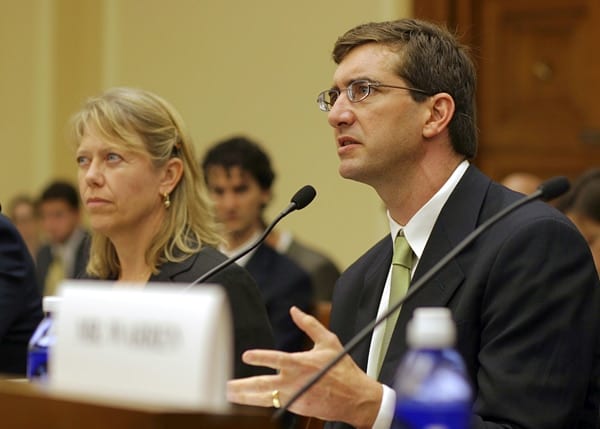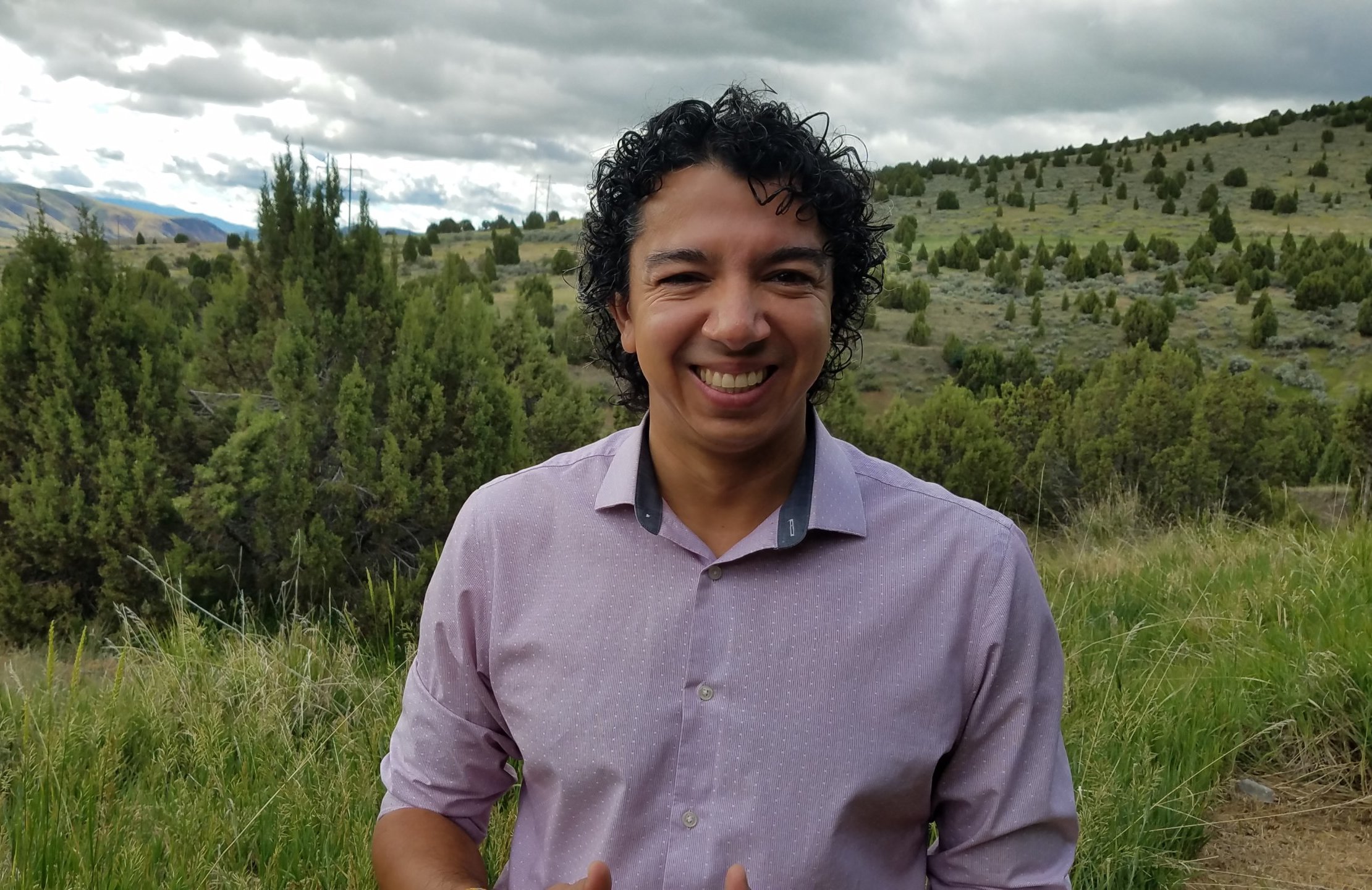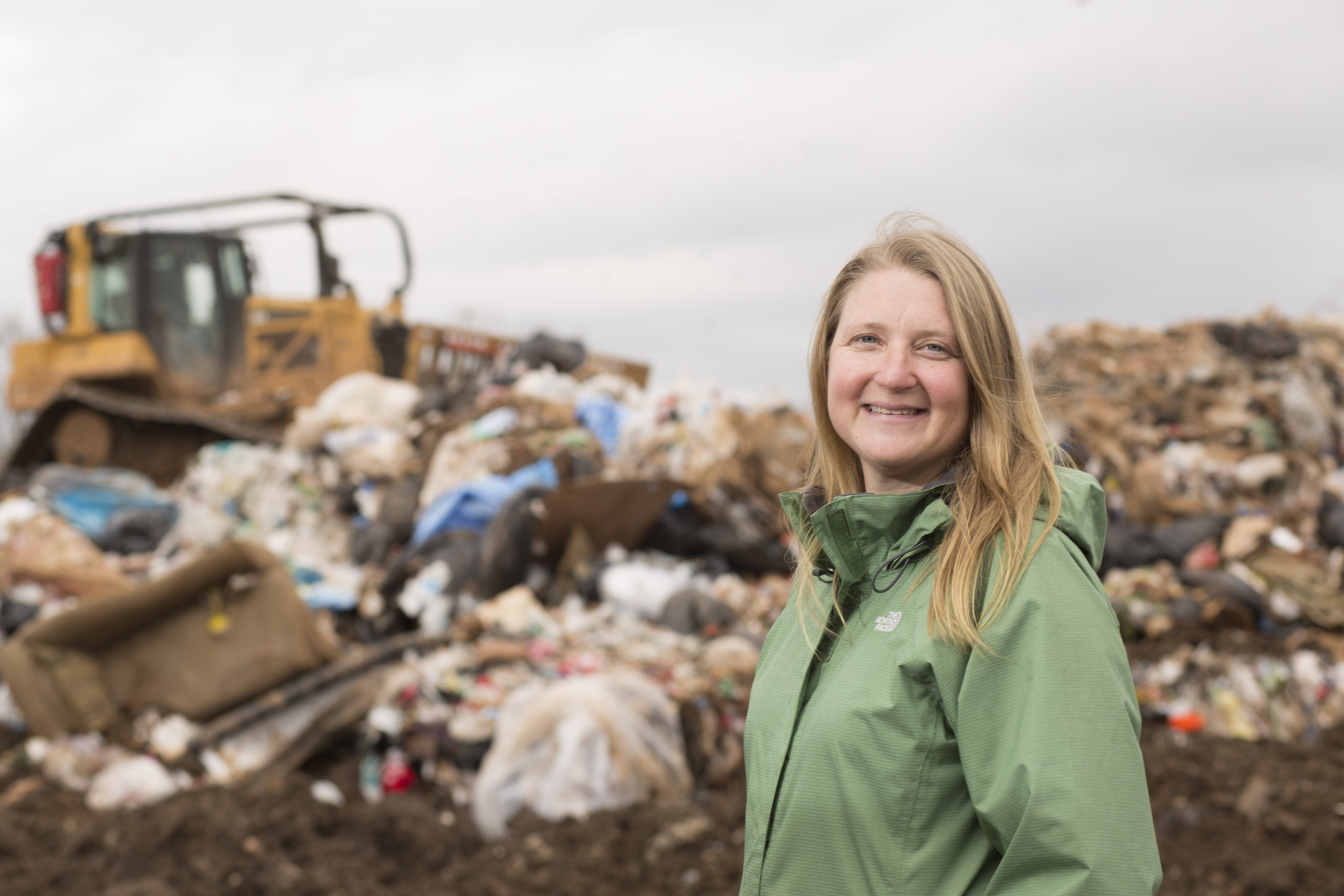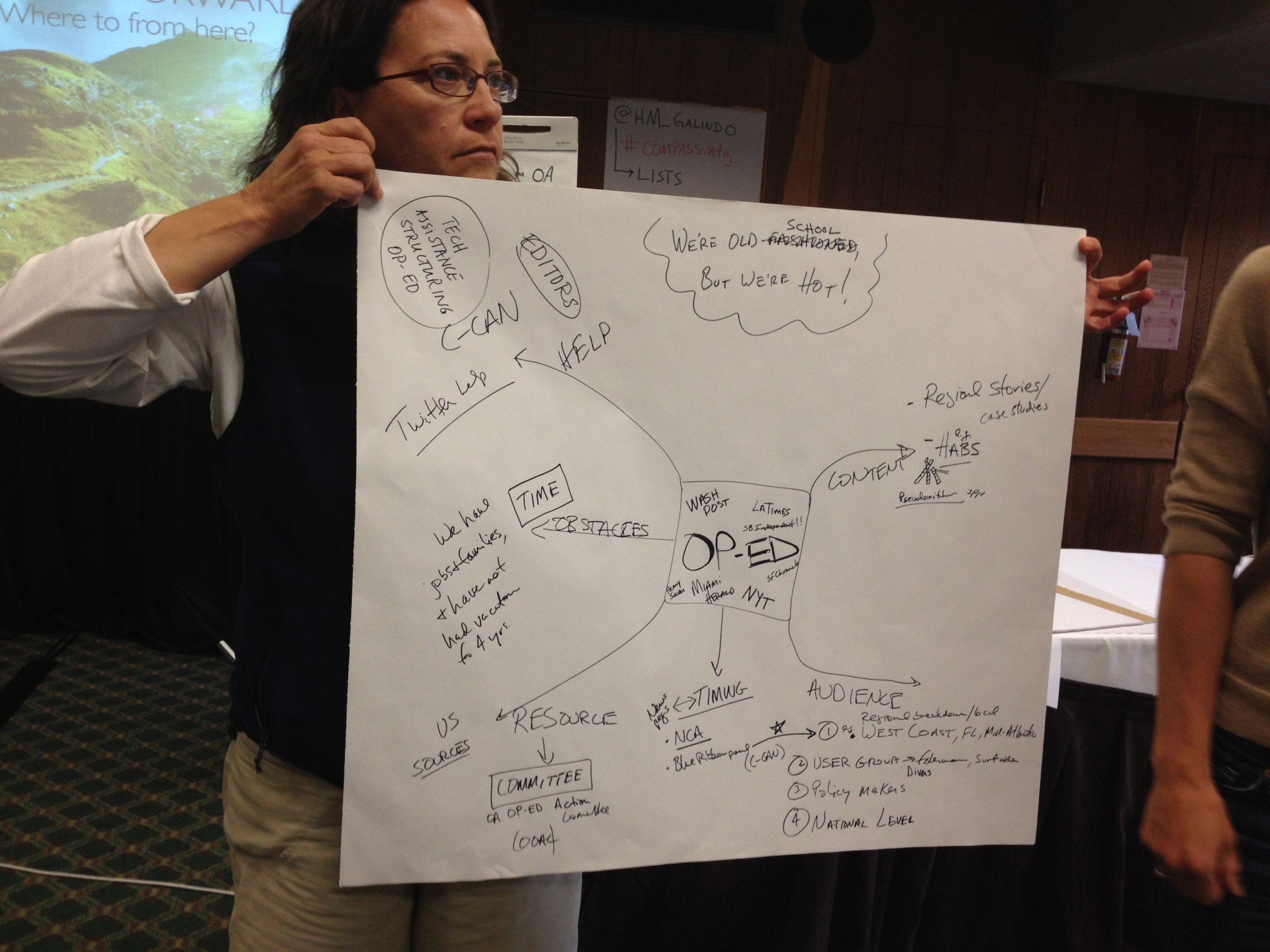“When you look at it on paper, you would think that our group really disagreed, but it’s so different face to face. Fire ecology is a discipline where there is a lot of back and forth. Those arguments at the beginning of scientific papers can seem so heated, but once we got into the room with the journalists, we realized that there were so many things that each of us 100 percent agreed with but that were not being cleanly communicated.” – Dr. Brian Harvey, University of Washington
As a Leopold Leadership Fellow in 2004, Dr. Scott Doney gamely participated in one of our trainings. He drafted his Message Box, sweated through his mock interview scenarios, and learned about journalism and policymaking. As a marine chemist, he thought that the policy work seemed interesting but unlikely. “I thought, this is all well and good for other folks, but I’ll never get asked. I would have never guessed, sitting in the training doing the testimony, that that would be me one day.”
In fact, his Message Box work in that initial Leopold training had already set him on that path. Although it was only one of several issues he studied, he had chosen to focus on a little-known phenomenon called ocean acidification. It caught the attention of journalist trainer Sarah Simpson of Scientific American. With her as his editor, he went on to write “The Dangers of Ocean Acidification”, one of the first popular articles on the topic. The message, as the title suggests, was clear.
“You’re an expert on this really narrow slice of the world, so you’re hesitant to speak outside of that,” Scott says. However, his article caught the attention of Representative Jay Inslee, who reached out to COMPASS to organize a briefing for members of Congress. What had been a troubling chemistry problem was elevated to a policy question, “…and it snowballed,” Scott says. Our team helped Scott and others prepare to bridge the gaps between what they knew and what the policymakers needed, by organizing meetings and helping him hone his presentations. Scott became a trusted source for policymakers interested in ocean acidification’s potential implications.
Yet for all his new policy experience, Scott says “ I was still scared beyond belief the first time I got called to testify.” But he wasn’t alone. Our job at COMPASS is to help scientists feel prepared and confident when entering these situations. After Scott was invited to testify, we made sure that he understood the ins and outs of the testimony process, including what would happen when, how to make his testimony clear and relevant for Congress, and how to answer questions effectively.
“Simply being familiar with the process was useful–even things as small as knowing how to address the committee chair,” he says. We made sure that Scott was prepared, but most importantly, as we worked with Scott we helped him explain the relevance of his science to policy decisions Congress were facing.
“It all goes back to knowing your audience. What’s the right tone and level of detail? Having someone with a critical eye who knows the science but also how things work on Capitol Hill, someone who can say ‘that’s too much jargon’ or explain the proposed legislation or the constraints–that’s an invaluable service COMPASS provides,” Scott told us later.
Scott’s decision to make science communication a priority ultimately changed the trajectory of his career, and led him to his current role as Department Chair of Marine Chemistry and Geochemistry at the Woods Hole Oceanographic Institute. Scott says, “Now I read more broadly, I know more people, I have wider connections. As a contributor to the National Climate Assessment Report, I have to talk about aspects of the entire field and serve as a representative of the whole field.”
Scott’s policy engagement has also shifted his research questions to more socially relevant science. He says “I saw that the oceans were neglected in terms of climate change, which is going to have a big impact on people’s lives and livelihoods. These questions about how we will respond to a changing ocean touch on so much of the environmental science that scientists need to play a role in how these decisions are made. If we don’t, it creates a vacuum that’s filled by advocacy, where the science is cherry-picked.”
Scott broadened his professional and research horizons through engaging with policymakers, after learning more about communicating his science with us at COMPASS.



